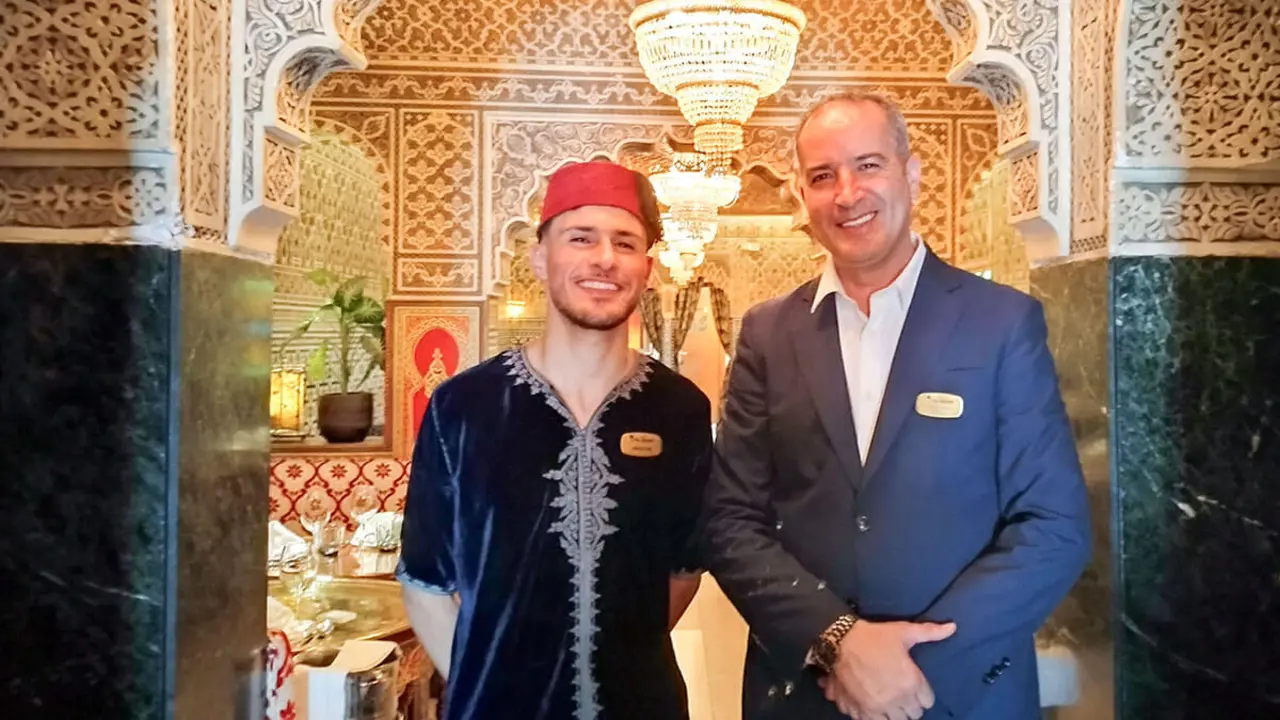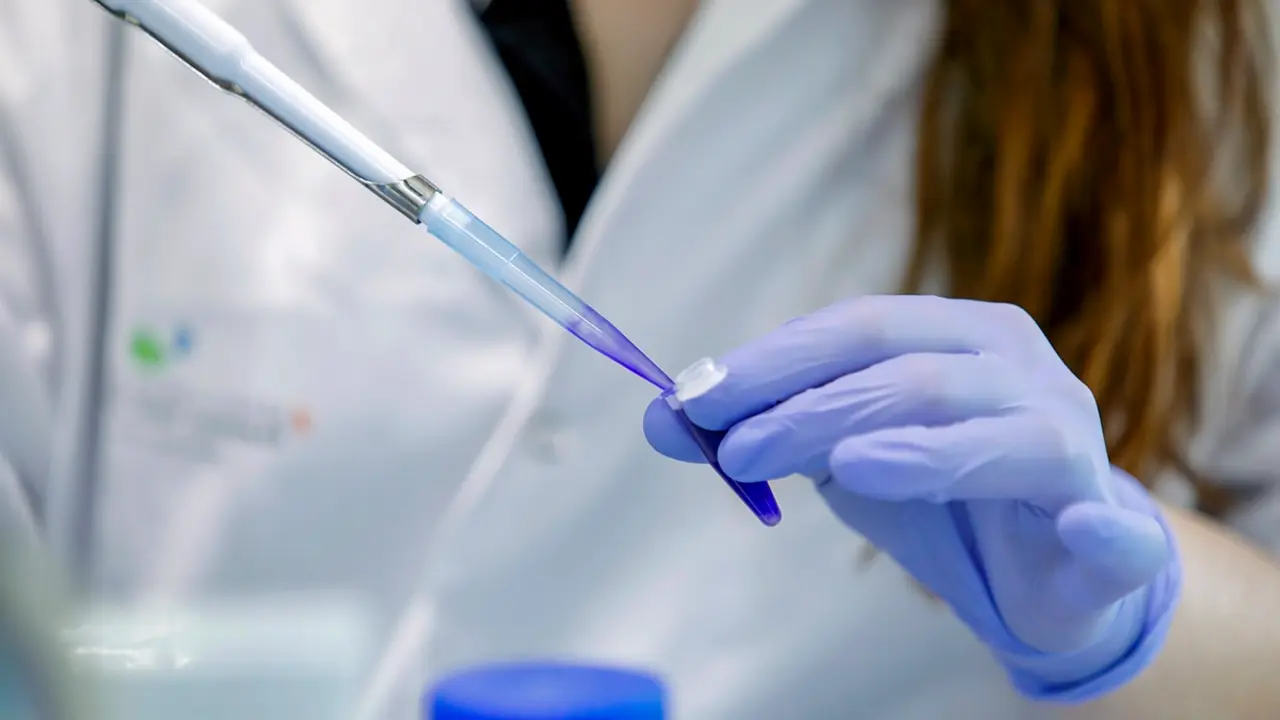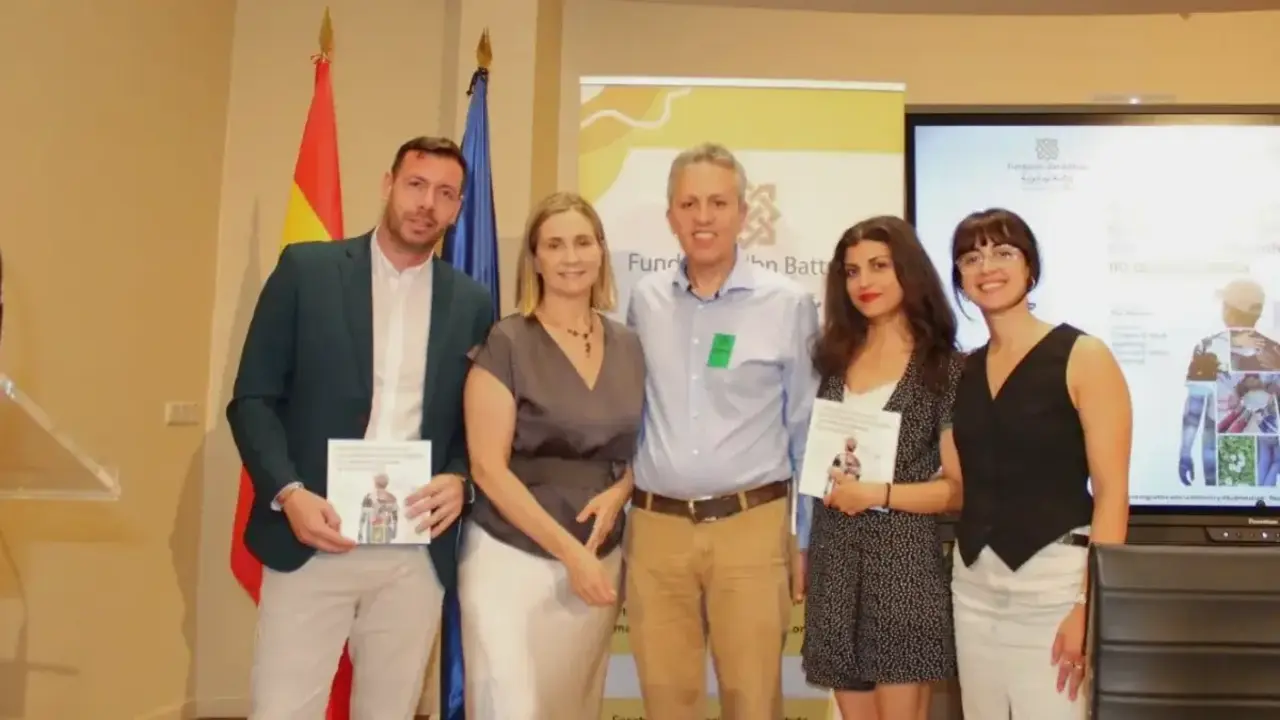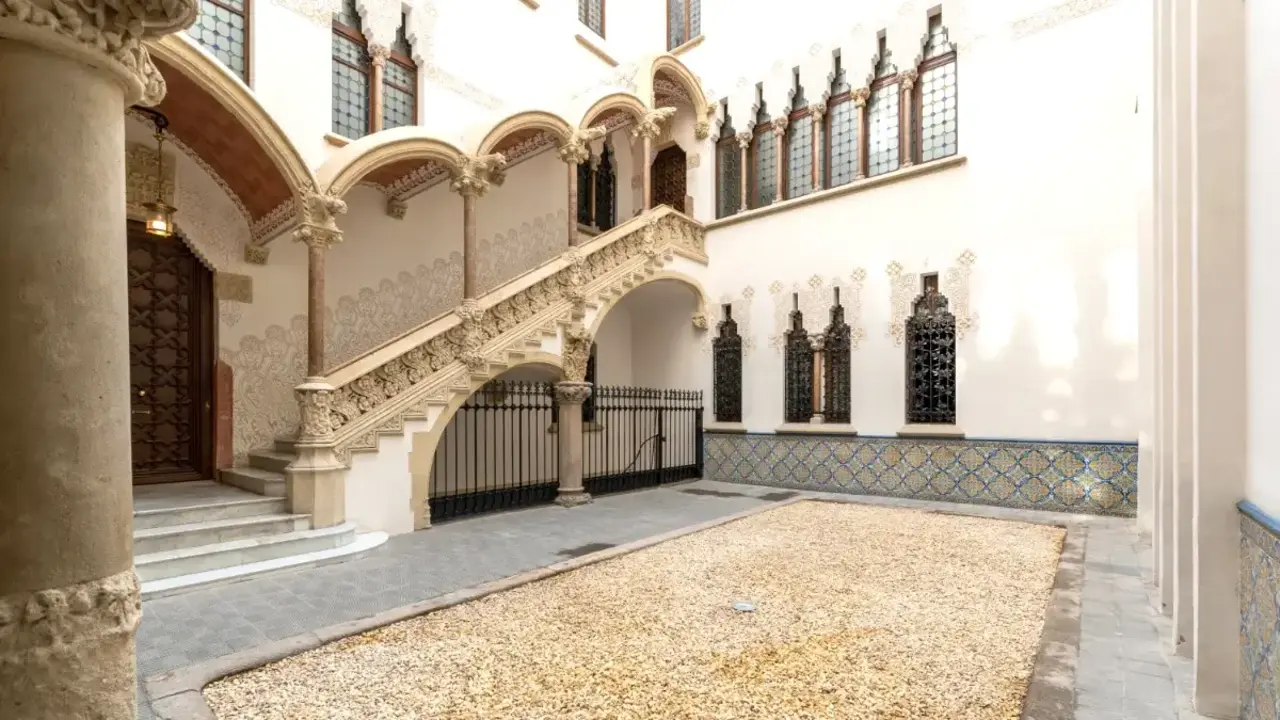The future of work in the media

Nebrija University hosted the 17th CLABE Editors' Conference at its campus in the centre of Madrid under the title "The future of work in the media" to discuss the future of editors and the media themselves in a world currently marked by major technological advances, including Artificial Intelligence.
The Club Abierto de Editores (CLABE) is the most important association of the media sector in Spain with more than 180 associated business groups and nearly 1,000 titles in all formats, periodicities and contents, including media such as Atalayar. It is the only publishers' association that belongs to the Spanish Confederation of Business Organisations (CEOE) and the Spanish Confederation of Small and Medium-sized Enterprises (CEPYME). Created in 2000 as the Asociación Española de Editoriales de Publicaciones Periódicas (AEEPP), the current CLABE is a founding member of the European Innovative Media Publisher (EIMP), a union of innovative European media to promote a regulatory environment that fosters a diverse, competitive and innovative media publishing sector.
For this 2023 Congress, CLABE has once again sought to maintain the line of previous events of reflecting and "exploring the future of the activity to adapt and find opportunities", and to serve society and the sectors "to which we owe and which we address", as recognised in his speech by Arsenio Escolar, founder of CLABE and editor of Archiletras, a project dedicated to the Spanish language.

The CLABE Editors' Congress was sponsored by Google and the Spanish Centre for Reprographic Rights, with the collaboration of Nebrija University and Delivery Media. Ignacio Rojas, president of the programme committee of the 17th CLABE Editors' Congress and first vice-president of the Open Club of Editors, was in charge of opening the session and highlighted that this was the second consecutive edition held in Madrid after the one held telematically in 2020, forced by the pandemic. He also stressed that CLABE is the largest media organisation, with 182 associated publishing groups.
The first vice-president of CLABE stressed the important role of the media in the formation of society and that, with 37 years of personal experience as an editor, he sees it as very important to focus on the arrival of digitalisation and the latest technological advances, with the irruption of Artificial Intelligence playing a major role. Ignacio Rojas wondered about the future of the media: "Technological companies or media?"

In her turn, Marta Perlado, Dean of the Faculty of Communication Sciences and Arts at Nebrija University, highlighted the importance of the event hosted by the university itself, which is home to 12,500 students on the Princesa campus, where historic buildings dating back to 1906 that housed the Army Historical Archive are located. The dean highlighted the integration of Communication and the Arts within a pioneering approach, combining creativity and new technologies and the digital environment within the educational offer of the Nebrija University, which has 1,600 students in this Faculty of Communication Sciences and the Arts.

Arsenio Escolar, as founder of CLABE and editor of Archiletras, in his fourth term as president of the Open Publishers Club, wanted to look back at the history of the Club and recall that the first Congress was held in 2004 and that, until now, the Club has always been concerned with the same thing: "What we are, what we do, what the future looks like and where we are going".
Arsenio Escolar stated that there is the same line of continuity in the reflection, after two decades promoting collaboration between competitors and digital transition. The president of CLABE emphasised that the objective is to continue "exploring the future of the activity in order to adapt and find opportunities and to provide a service to the society to which we owe ourselves and to the sectors we address".
The editor of Archiletras referred to the debate forum on the immediate future and the impact of technology on employment and on the way the media are produced, as the main core of the Congress itself. Arsenio Escolar himself also wanted to highlight the role of CLABE as the "largest association of publishers in terms of number and talent and capacity for adaptation".

Sebastian Remoy, president of the European Independent Media Publishers (EIMP), spoke about the EIMP itself, which represents more than 1,000 media, with CLABE as a founding member.
Remoy spoke of having a "diverse media landscape with a multitude of players" and "better journalism for society". The EIMP president pointed out that it is important to encourage independent media to exist through appropriate legislation. Remoy himself said that media competition should not be hindered by legislation and that the EIMP is committed to the European Freedom of the Media Act and to the proposal of the European Commission, the European Parliament and the Council of the European Union in this regard. All of this is aimed at maintaining a strong commitment to the objective of "protecting the freedom and independence of the media".
Finally, Sebastian Remoy expressed the great interest in Artificial Intelligence and its repercussions, due to its future relevance for the media.

Afterwards, Eduardo Castillo, director of the Journalism degree at Nebrija University, went on to present the round table discussion entitled "Is there a future? What future?", with the participation of Mónica Quintana, CEO of Mindset, and David Alayón, CEO of Innuba, both authors of the book "Upgrade", and José Antonio González Alba, representative of Sembramedia.
Eduardo Castillo indicated that the university must respond to and listen to the professionals who are trying to move forward with foresight and analysis in the face of radical change. "The future of the media and society depends on the vindication of digital humanism, transformation, adaptation to radical changes and multidisciplinarity."
Monica Quintana pointed out that it is important to "anticipate what may come" and that "different technologies impact the way we live and think", with specific reference to generative artificial intelligences such as ChatGPT, an artificial intelligence chatbot tool developed in 2022 by OpenAI that specialises in dialogue. Mindset's CEO pointed out that technological transformations affect everything we do, the relationship with media and how humans change.
David Alayón explained the main details of the book "Upgrade", focused on helping everyone in the current times of accelerated transformation in which professional careers are changing rapidly. Factors such as technological disruption, the climate challenge, geopolitical disputes or global health challenges contribute to create a context of great uncertainty and the challenge is to update professional skills to remain relevant in an uncertain future.

Meanwhile, José Antonio González Alba spoke about helping digital media to be more sustainable, which is the main objective of Sembramedia, an entity present in more than 20 Latin American countries with more than 1,000 digital native media, all with reference to the continuous adaptation as journalists and media to the existing advances. These actors will continue to be fundamental in "guaranteeing democratic values, controlling power and maintaining values in the face of current technological changes".
Alejandro Garrido, Retail Industry Manager and SE Export Team Lead at Google, gave the conference "Google News Initiatives driving digital transformation for a sustainable news ecosystem".

"At Google we want to advance quality journalism, we have reached more than 2.5 million users in 120 countries", thanks to the Google News Initiatives programme, which has an investment of 300 million dollars.
Alejandro Garrido spoke about how to help combat disinformation. "We have to recognise that it is complex, but we try at all times, for example, with the Bulobús, which will travel to 20 locations in Spain between April and May, to try not to be misinformed. It's a way for Google as a sponsor and instigator of initiatives that are committed to media literacy," he explained. Google is not only in Europe but all over the world, also with initiatives in Latin America.
In order for technology to accompany Google in the digital process within the publishing world, the company has several products such as, for example, "Pinpoint". Other tools to make work easier include Fact Check Explorer and Google Trends.

As for the business model, Alejandro Garrido indicated that the most important thing is training. In this sense, Google has News Lab and News Intiative Startup as important elements.
There are also tools for the publishing world in order to have closer relationships with readers and future readers and to obtain more audience data. Another notable product is Newstring
"At Google we are trying to make more collaborative projects to support the future of journalists. The bet with CLABE is fundamental. Soon there will be processes linked to new projects", said Garrido, who pointed out that Google "remains committed to removing empty or false news".







